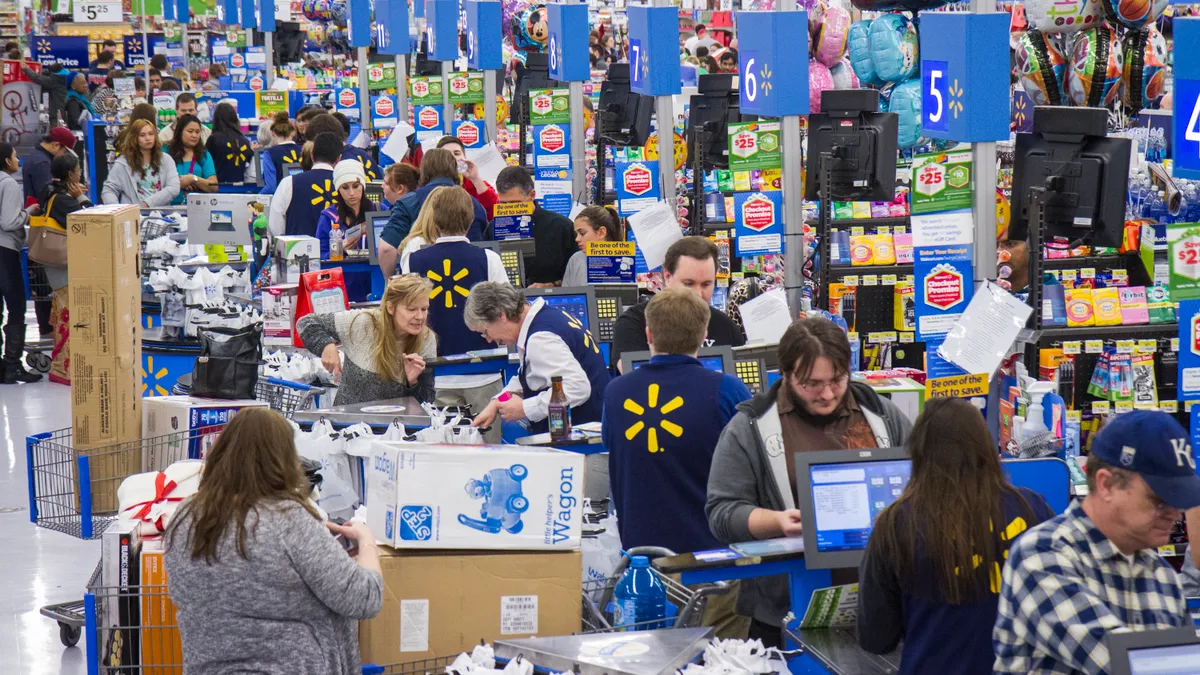Dive Brief:
-
Walmart plans to invest heavily in Nvidia graphics chips as it works to build out its OneOps cloud network, according to research from Global Equities Research reported by Barron's.
-
Nvidia's graphical processing units are used to crunch the large amounts of data needed for machine learning applications and will be integral to Walmart's focus on Deep Neural Networks.
-
Barron's Trip Chowdhry reports Walmart is building a "GPU farm" that will be about a tenth of the size of rival Amazon Web Services' GPU cloud.
Dive Insight:
The rivalry between Walmart and Amazon intensified in recent months after Amazon bought Whole Foods Market, squaring the two companies up as more direct competitors. Soon after the Whole Foods acquisition was announced, Walmart revealed that it would build out its OneOps cloud rather than continue to use AWS.
Walmart then reportedly pressed technology suppliers not to use Amazon's cloud services, telling them to run their applications with a different provider if they want to do business with Walmart. On Wednesday, reports surfaced that Target also plans to pull back on its use of AWS. While AWS may be losing a few customers, it remains the largest cloud services provider with over 34% of the market.
Walmart is turning to a strong AI company with its investment in Nvidia chips. Earlier this year, NVIDIA announced plans to train 100,000 developers in AI skills through its Nvidia Deep Learning Institute in 2017.
Deep neural networks, a subset of AI, are being tapped by tech companies to make sense of data. The networks process and analyze information in a way similar to the human brain, categorizing information into hierarchies and pulling out important insights.
DNNs are not the only advanced data analytics tool Walmart is turning to. A week prior to the Nvidia announcement, Walmart joined IBM and a coalition of food suppliers in a blockchain undertaking to improve data management systems for food traceability and safety.
Walmart is also trying to integrate modern tech into its brick and mortar operations too by enhancing a customer's in-store experience with machine learning. Facial recognition systems can identify customer dissatisfaction so the company knows where and how to change its operations. Walmart also filed a patent application for IoT product tags that can track product usage, replacement and expiration.
By integrating AI, Big Data and the IoT into its supply chain and daily operations, Walmart is trying to secure its role as a modern and technological competitor.













